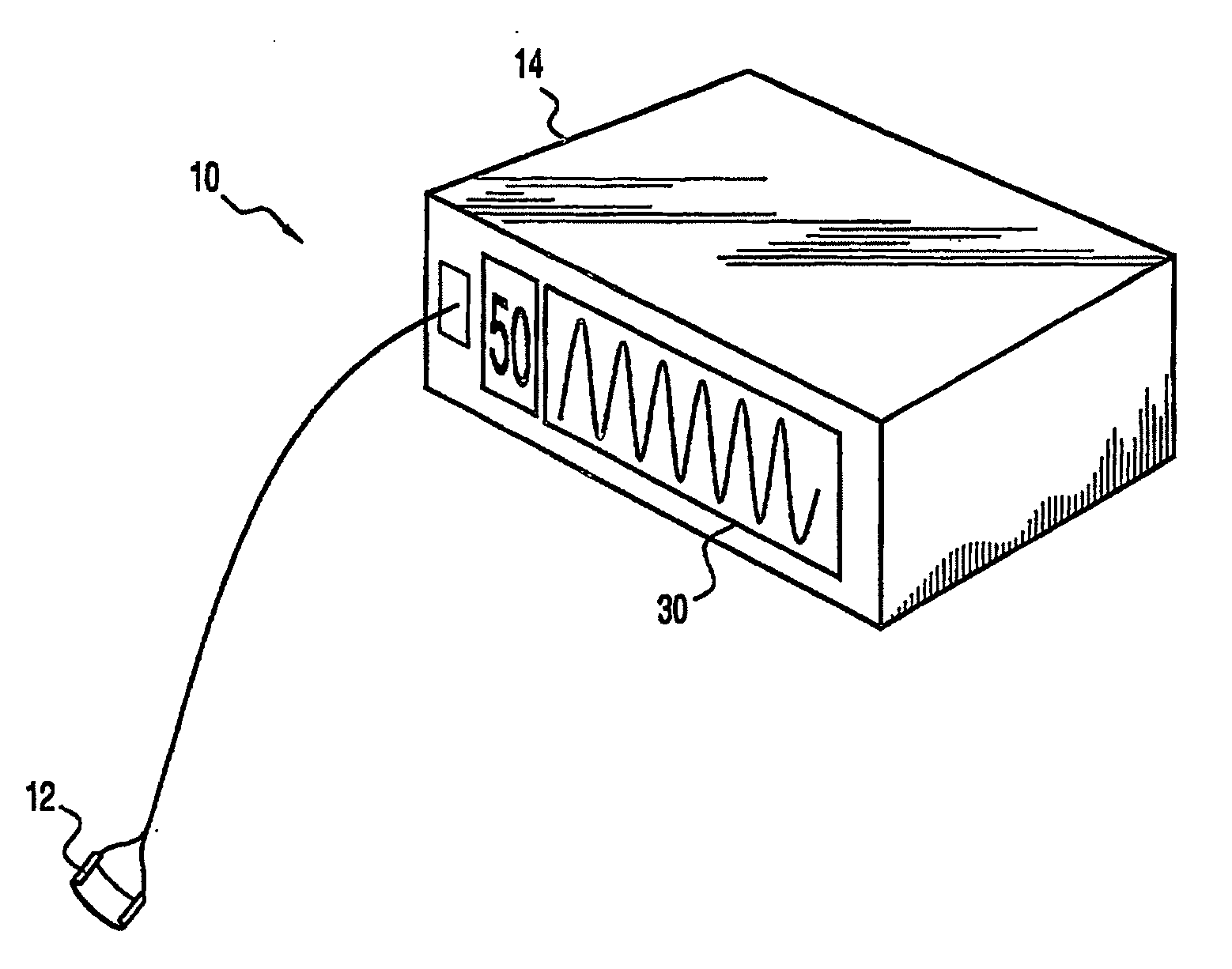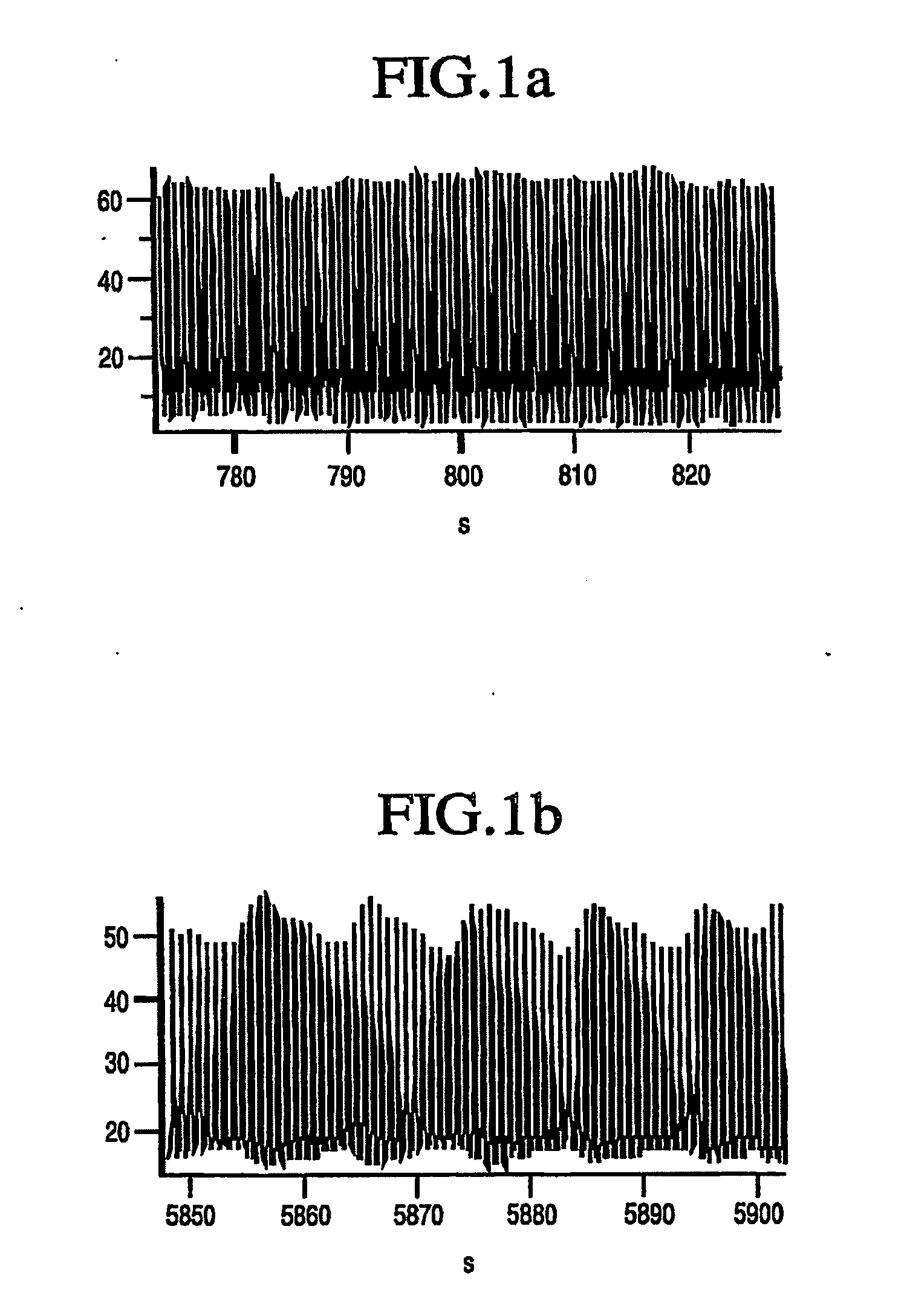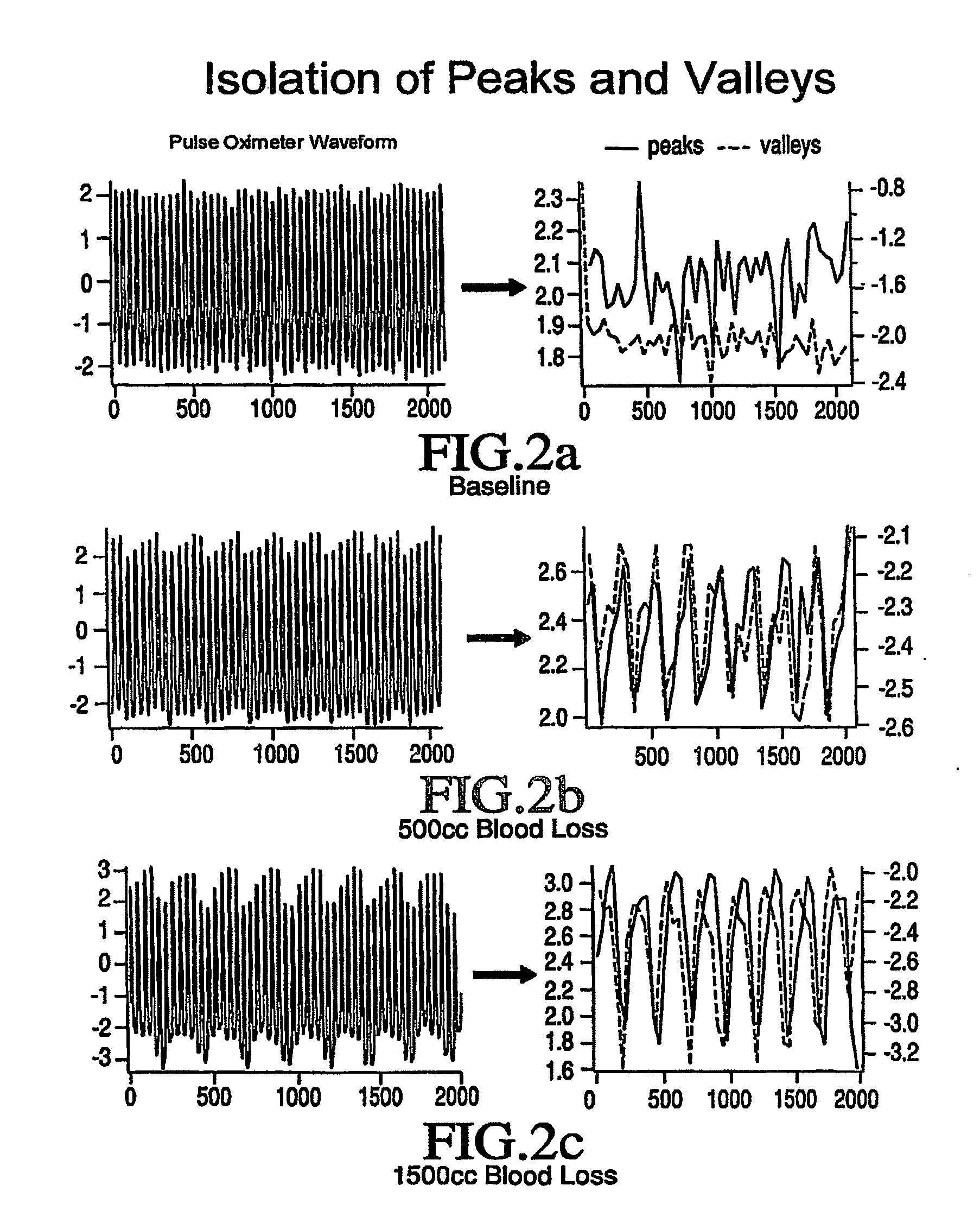Method of Assessing Blood Volume Using Photoelectric Plethysmography
a technology of plethysmography and blood volume, applied in the field of methods, can solve the problems of unacceptably frequent complications, remarkably little work done to document or quantify this phenomenon, and lack of a continuous measurement method of the phenomenon
- Summary
- Abstract
- Description
- Claims
- Application Information
AI Technical Summary
Problems solved by technology
Method used
Image
Examples
Embodiment Construction
[0047]The detailed embodiments of the present invention are disclosed herein. It should be understood, however, that the disclosed embodiments are merely exemplary of the invention, which may be embodied in various forms. Therefore, the details disclosed herein are not to be interpreted as limiting, but merely as the basis for the claims and as a basis for teaching one skilled in the art how to make and / or use the invention.
[0048]With reference to FIGS. 1 to 5, and in accordance with a first embodiment of the present invention, a method for assessing blood volume through the analysis of a cardiovascular waveform, in particular, a pulse oximeter waveform, is disclosed. As the following disclosure will clearly demonstrate, the present invention monitors relative blood volume or effective blood volume. As such, the present method is preferably applied in analyzing blood volume responsiveness (that is, whether a patient needs to be given blood or other fluid).
[0049]In accordance with a ...
PUM
 Login to View More
Login to View More Abstract
Description
Claims
Application Information
 Login to View More
Login to View More - R&D
- Intellectual Property
- Life Sciences
- Materials
- Tech Scout
- Unparalleled Data Quality
- Higher Quality Content
- 60% Fewer Hallucinations
Browse by: Latest US Patents, China's latest patents, Technical Efficacy Thesaurus, Application Domain, Technology Topic, Popular Technical Reports.
© 2025 PatSnap. All rights reserved.Legal|Privacy policy|Modern Slavery Act Transparency Statement|Sitemap|About US| Contact US: help@patsnap.com



